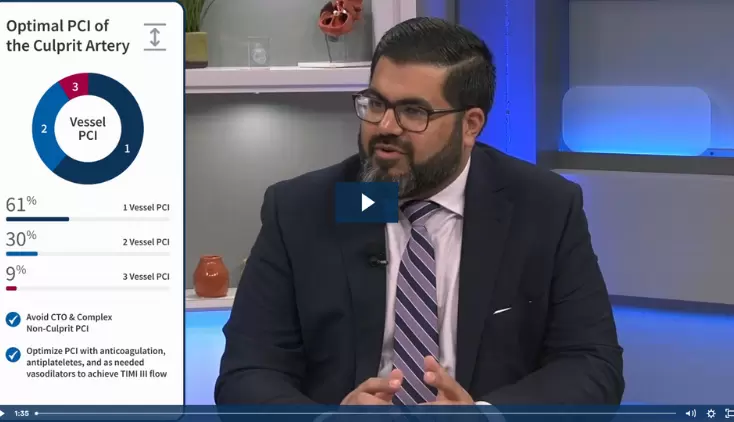Clinical Research & Data, Patient Management
HFSA 2021: Predicting Mortality in Acute Decompensated Heart Failure-Related Cardiogenic Shock
A. Reshad Garan, MD, discusses the importance of determining etiology and predicting risk in patients with acute decompensated heart failure-related cardiogenic shock (ADHF-CS). Dr. Garan is section chief, advanced heart failure and mechanical circulatory support at Beth Israel Deaconess Medical Center in Boston, MA, and associate professor of medicine at Harvard Medical School. He gave this presentation virtually at the 2021 Heart Failure Society of America (HFSA) scientific meeting.
Dr. Garan emphasizes the changing demographics of shock that reflect more patients with ADHF-CS in the CCU. “And those are the patients that often times will take up ICU beds and be there for longer periods of time,” he notes. It is important to be aware of the different etiologies of shock because etiology is critical in determining prognosis and may impact response to therapy. “One of the important things to recognize is that what matters with respect to prognostic value in one patient with cardiogenic shock may be very, very different than what matters in a different patient population with cardiogenic shock.”
Dr. Garan explains how flow-related indices, such as cardiac power output (CPO), tend to be very powerful predictors of early outcomes in patients with acute myocardial infarction-related cardiogenic shock; however, in heart failure patients, “filling pressures are going to dictate outcomes much more so than flow-related indices.”
He also explains that measuring success differs by CS etiology, showing data demonstrating that 75% of surviving patients had native heart recovery in acute myocardial infarction-related cardiogenic shock, while in ADHF-CS, more than half required bridge to LVAD or transplant.
Therapy response may also differ by etiology. “Therapy which may be of no value in one patient with cardiogenic shock may have some value in a different phenotype of patient,” Dr. Gran explains. “What we’ve learned from one phenotype really can’t be extrapolated, necessarily, to all patients with cardiogenic shock.”
Dr. Garan then discusses tools for identifying risks in patients with ADHF-CS. He discusses the SCAI staging classification, which offers a “common language,” and, while blind to etiology of shock, “does seem to have a powerful, or impressive value with respect to determining short-term prognosis for this patient population.” He also describes a risk score derived from his own research. “We derived a risk score, the ALC risk score, which incorporated age, lactate, and creatinine, to be relatively simple and easy to use at the bedside, and saw that it was a powerful predictor of early outcomes in a patient population exclusively focused on decompensated heart failure-related shock.”
“I do think etiology-specific risk prediction is going to be critical in terms of understanding how to use therapies and when to use them as we understand more and more about acute decompensated heart failure-related shock.”
NPS-2341


